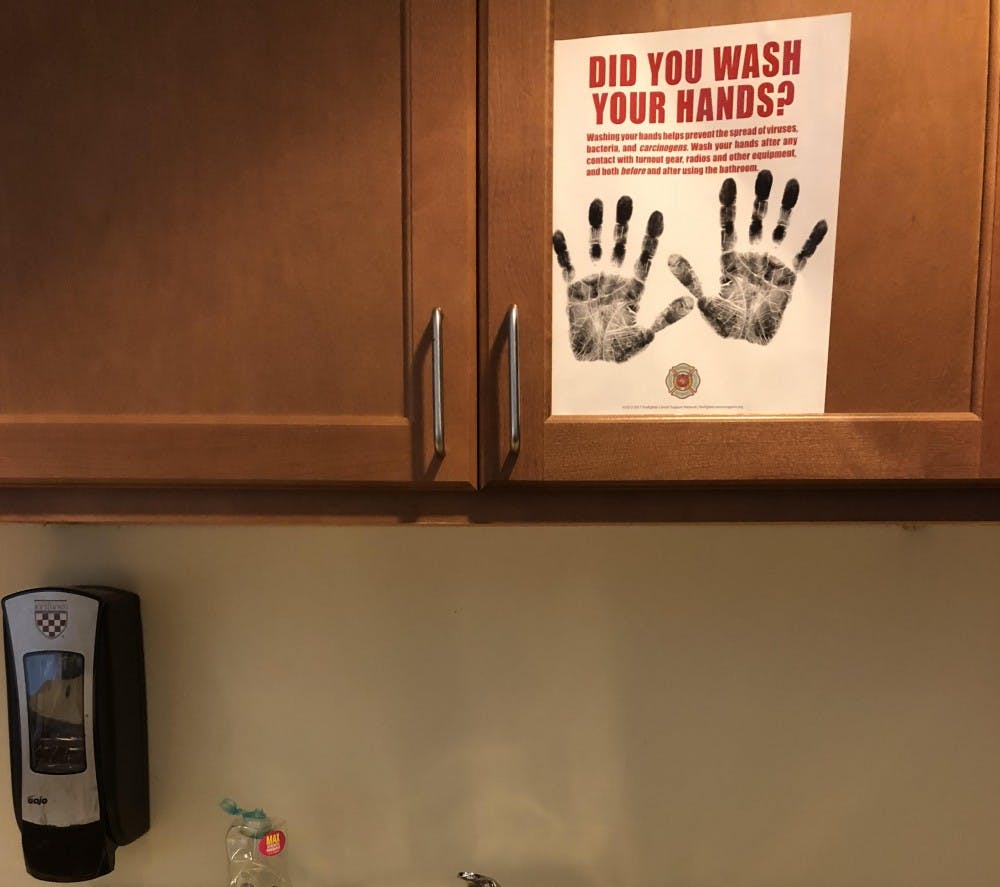Although bacteria surrounds us every day and is mostly harmless, some types can cause serious issues when you come into contact with them.
No food is sterile, and bacteria can reproduce very quickly, Maren Reiner, University of Richmond biology professor said. Upperclassmen living in apartments specifically have had to become more aware of their living areas now that they have kitchens, where bacteria is more likely to show up.
The majority of seniors who live on campus do not have a dishwasher. With this obstacle, many students such as senior Olivia Pivirotto need to take extra steps to keep their living areas clean.
“We typically clean our dishes using soap and hot water often and use Swiffer wipes to wipe down all of our counters,” Pivirotto said.
Although seniors such as Pivirotto have found cleaning challenging, she agreed that doing it has made her and her apartment-mates more aware of how they keep their kitchen clean and free of germs, she said.
Reiner said bacteria grow very quickly. Certain bacteria can reproduce every 20 minutes.
Reiner is an advocate for a safe and clean living environment. She and the Centers for Disease Control and Prevention suggest these five tips for keeping your kitchen environment germ free:
1) Keep all meats and poultry in the fridge.
This is key. When meats sit at room temperature, bacteria begins to grow – creating a higher risk of a foodborne illness. According to the CDC, when you are purchasing meat and poultry, it is always a good idea to keep these items separated from other food items so as not to spread bacteria.
2) Wash all fruits and raw vegetables.
A lot of produce has been sprayed with pesticides or has been growing around animals and bacteria, Reiner said. By rinsing off fruits and raw vegetables before eating them, you have cleared a large possibility of a foodborne illness. One thing to keep in mind is to never wash meat or poultry. According to the USDA, the only way to eliminate bacteria from meat is to cook it to the right temperature.
3) Always wash your utensils after cooking raw meat, especially chicken.
Enjoy what you're reading?
Signup for our newsletter
When cooking with foods such as chicken, it is always important to wash any cutting boards and utensils that have come into contact with the raw meat. According to the CDC, if utensils have not been washed, the bacteria can spread to other foods that may be placed on the cutting boards later.
4) Always wash your hands before eating or handling food.
Reiner said the importance of washing your hands could not be stressed enough. This may not be a surprise, but when you are a student living on campus, your hands come into contact with many things throughout the day. Hand washing is especially crucial if you have a cut because bacteria can seep through an open wound very quickly, according to the CDC.
5) Wash dishes by hand and let them air dry on a drying rack.
Although sponges can do a good job at scrubbing off the excess food from your plate, those sponges are being used on multiple kitchen utensils and pieces of equipment, ultimately transferring germs back and forth. According to the CDC, it is best to wash all tools within two hours before bacteria can begin to grow.
“It’s warmth that gives [bacteria] a better chance to still be viable if you touch something, so if you keep [produce and meats] in the fridge it will slow the growth of bacteria,” Reiner said.
There are many other precaution tips to prevent a foodborne illness, but these five rules are the most essential for a student living in an apartment with a kitchen.
Contact lifestyle writer Sophie Pilkington at sophie.pilkington@richmond.edu.
Support independent student media
You can make a tax-deductible donation by clicking the button below, which takes you to our secure PayPal account. The page is set up to receive contributions in whatever amount you designate. We look forward to using the money we raise to further our mission of providing honest and accurate information to students, faculty, staff, alumni and others in the general public.
Donate Now


